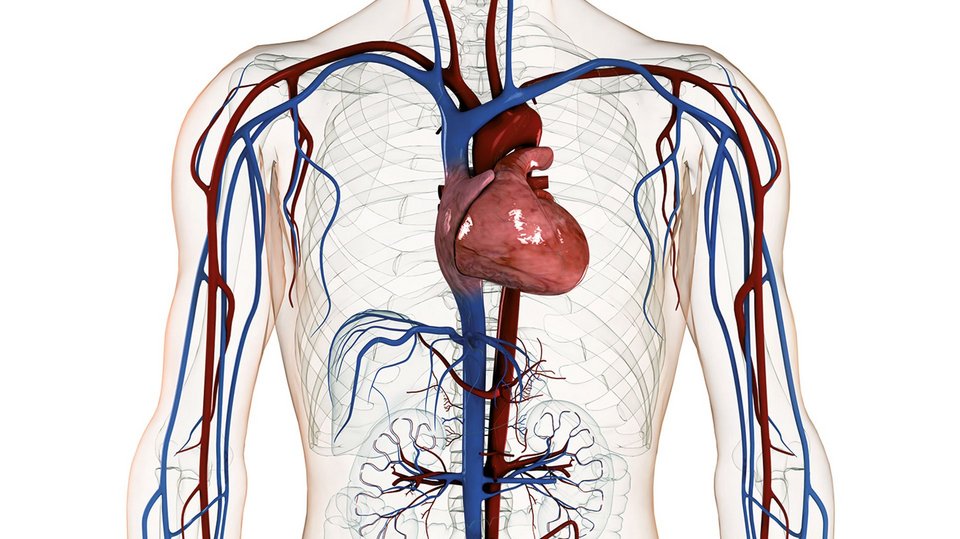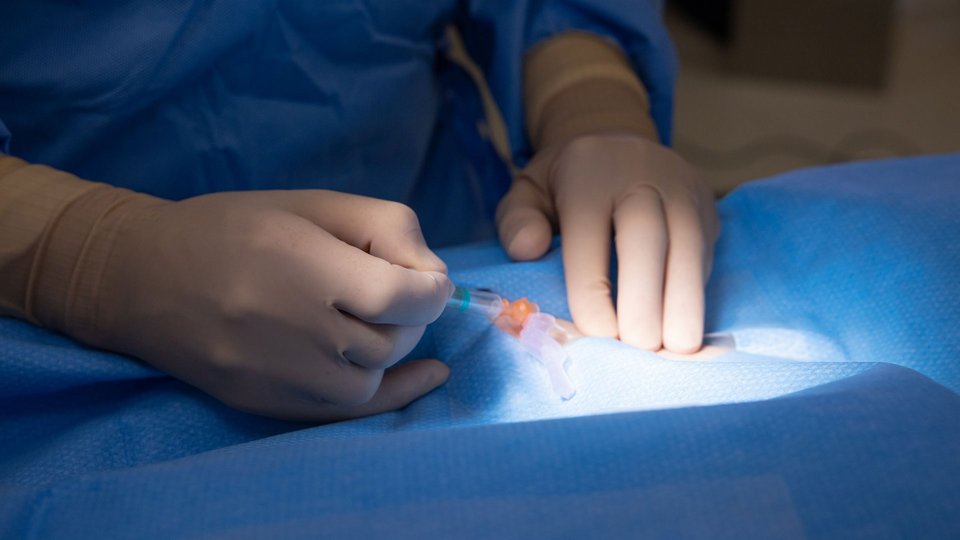What does high blood pressure (hypertension) mean?
High blood pressure is one of the most common diseases in the world. In Germany between 18 and 35 million people are estimated to have high blood pressure. Half of people over 60 are affected.
The optimum blood pressure is considered to be 120/80 mm Hg (millimeters of mercury). If an increase to a value of 140/90 mm Hg or more is measured repeatedly, this is termed high blood pressure.
High blood pressure is the most important risk factor for a stroke. However, it not only damages the brain, but also the heart, the kidneys, eyes and other blood vessels.
There is often no alternative to long-term medication. This usually has to be taken for the rest of a patient’s life. However, a healthy lifestyle is also important (exercise, Mediterranean diet, low alcohol intake).
Beforehand other treatable causes of the high blood pressure should be eliminated. These are for instance constrictions of kidney blood vessels, hyperthyroidism, overactivity of the adrenal glands or vitamin D deficiency.
When is there a need for inpatient treatment?
Hypertensive crisis or emergency
If your blood pressure is considerably higher than your normal blood pressure measurement and you are also suffering from chest pain, angina, burning sensation in the chest, shortness of breath, cramps similar to those that occur in an epileptic seizure, paralysis or speech difficulties, strong nausea, blurred vision, nosebleeds or pronounced drowsiness, you should immediately alert the emergency response doctor
Evaluation of treatable causes of high blood pressures
In order to evaluate the causes of high blood pressure inpatient admission may be appropriate as particularly blood tests to establish for instance overactivity of the adrenal glands are only possible under inpatient conditions. Only in this way can certain conditions be created that are necessary to achieve usable results. More intensive investigations are frequently only possible under inpatient conditions.
When does an ablation of the sympathetic nerves for the treatment of high blood pressure come into consideration (renal denervation)?
- a treatable cause of high blood pressure (“secondary arterial hypertension”) can be ruled out.
- three or more blood pressure medications, including a “water tablet”, are being taken at high doses or the blood pressure medications are not tolerated.
- despite this treatment blood pressures >150/90 mm Hg are still registered.
Renal denervation technique
The method, which originated in the USA, was introduced in Germany around three years ago and has also been available in our center since 2011. A patient observation study has shown that what is termed “renal sympathetic denervation” can lower blood pressure in the long term for 80 percent of therapy-resistant high-blood-pressure patients with a good rate of success. This involves using electricity to ablate nerve fibers of the sympathetic nervous system in the wall of the renal arteries that are crucial to the development of high blood pressure (“radio frequency ablation”).
A catheter is fed through the inguinal artery into the renal arteries and the wall of the blood vessel is heated to 50 to 70 degrees Celsius at multiple points. The activity of the nerve fibers is thus reduced by around 50 percent. The method can result in a clear and lasting lowering of blood pressure without any side effects.
General anesthetic is not required.
Prior to the catheter-based procedure merely the groin is locally anesthetised. The patient is able to go home after just one night. In the following days hardly any physical restrictions are likely.


![[Bitte in "english" übersetzen:] [Bitte in "english" übersetzen:]](/fileadmin/_processed_/3/6/csm_Herz-Gefaesszentrum_Kliniken_b881e41a9d.jpg)
